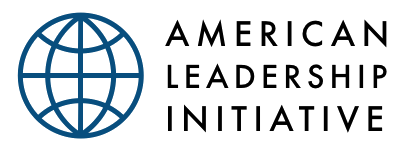Roundtable with the Alliance to End Hunger: Reforming Trade and Development to Reduce Poverty and Hunger
/ALI co-hosted a roundtable with the Alliance to End Hunger examining reforms in trade and development which could reduce poverty and hunger. A Senior thought leaders from civil society, think tanks and business joined the discussion. Katrin Kuhlman, President of New Market Lab and Visiting Professor at Georgetown University and Kim Elliott, Professor at George Washington’s Institute for International Economic Policy.
Key takeaways included:
Integrate Trade and Development: We need to keep the relationship between trade, development, and food security in mind when looking at solutions for poverty.
WTO Aid for Trade Initiative launched in 2005 has been effective, with $409 billion in aid delivered and an additional $350 billion in loans. This is an important initiative, but more needs to be done.
Preferences: The GSP program expires at the end of 2020 so it is time to examine ways update the program.
The program should be put in place indefinitely, with reformed eligibility criteria. The program has typically been renewed for 1-2 years at a time which makes the preferences uncertain, making stakeholders hesitant to invest in poorer countries.
The U.S. should remove its quota restrictions on poor countries. Most developed countries, except the U.S., provide quota-free market access to least developed countries (LDCs). The U.S. gives preferences to Haiti and AGOA countries but leaves Asian LDCs without good access to US markets.
Africa: The African Continental Free Trade Area (ACFTA) is a promising development.
The ACFTA is moving much faster than anticipated. It started as a political commitment and has developed into a meaningful agreement with 54 signed on.
The U.S.- Kenya deal will be “mini-deal.” It’s a missed opportunity for the U.S. to focus on the larger Africa trade initiative.
Rule of Law: It is critical for a country to have a functioning set of rules in the agricultural and food sectors.
Countries need transparency on regulations covering everything from investment and land acquisition to sanitary and phytosanitary regulations.
Harmonizing local regulatory environments is critical to moving food across borders.
WTO: The developed world needs to focus on starting to peel back agriculture subsidies, which create market distortions, and impose challenges for developing country market access.


